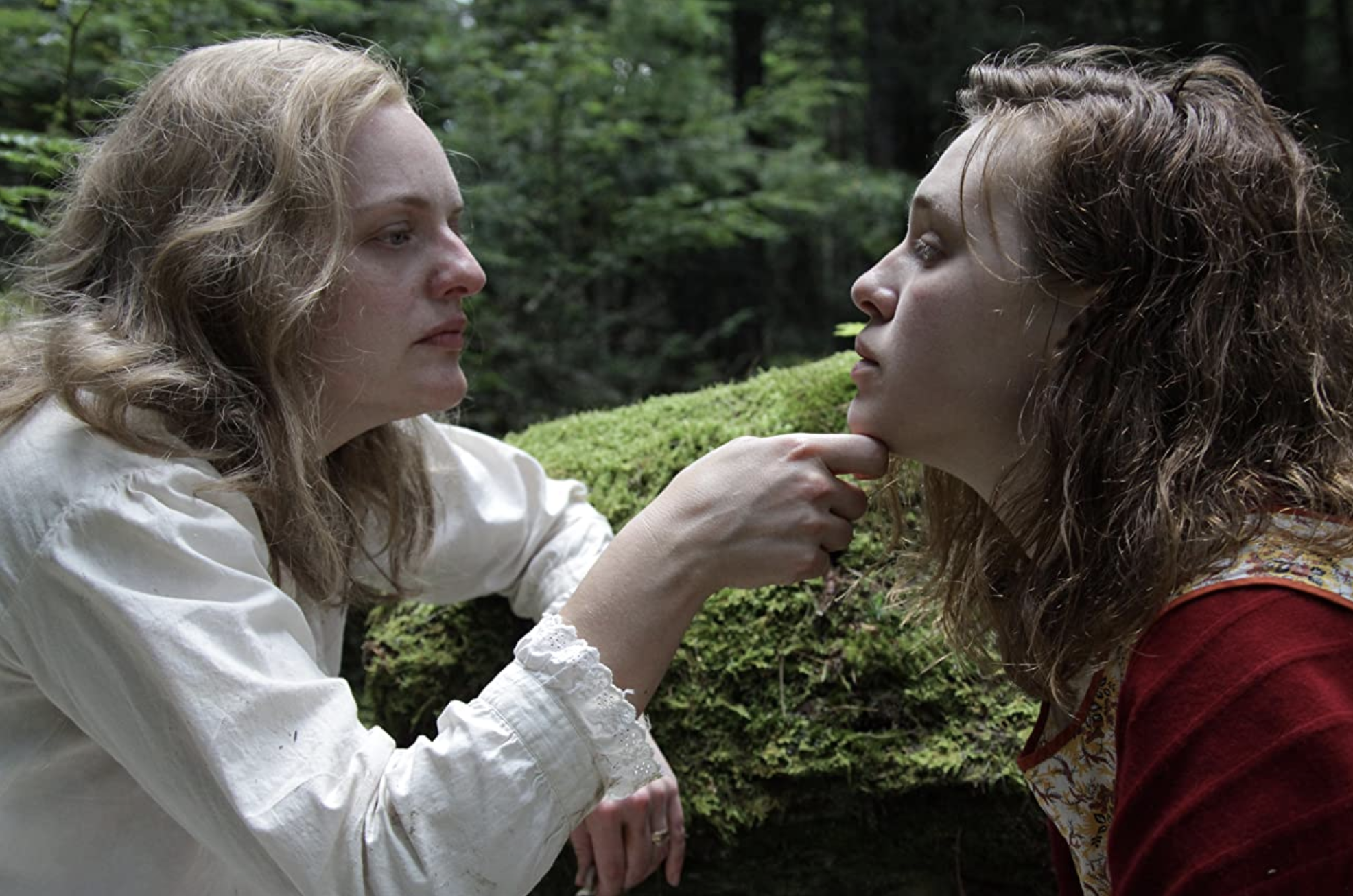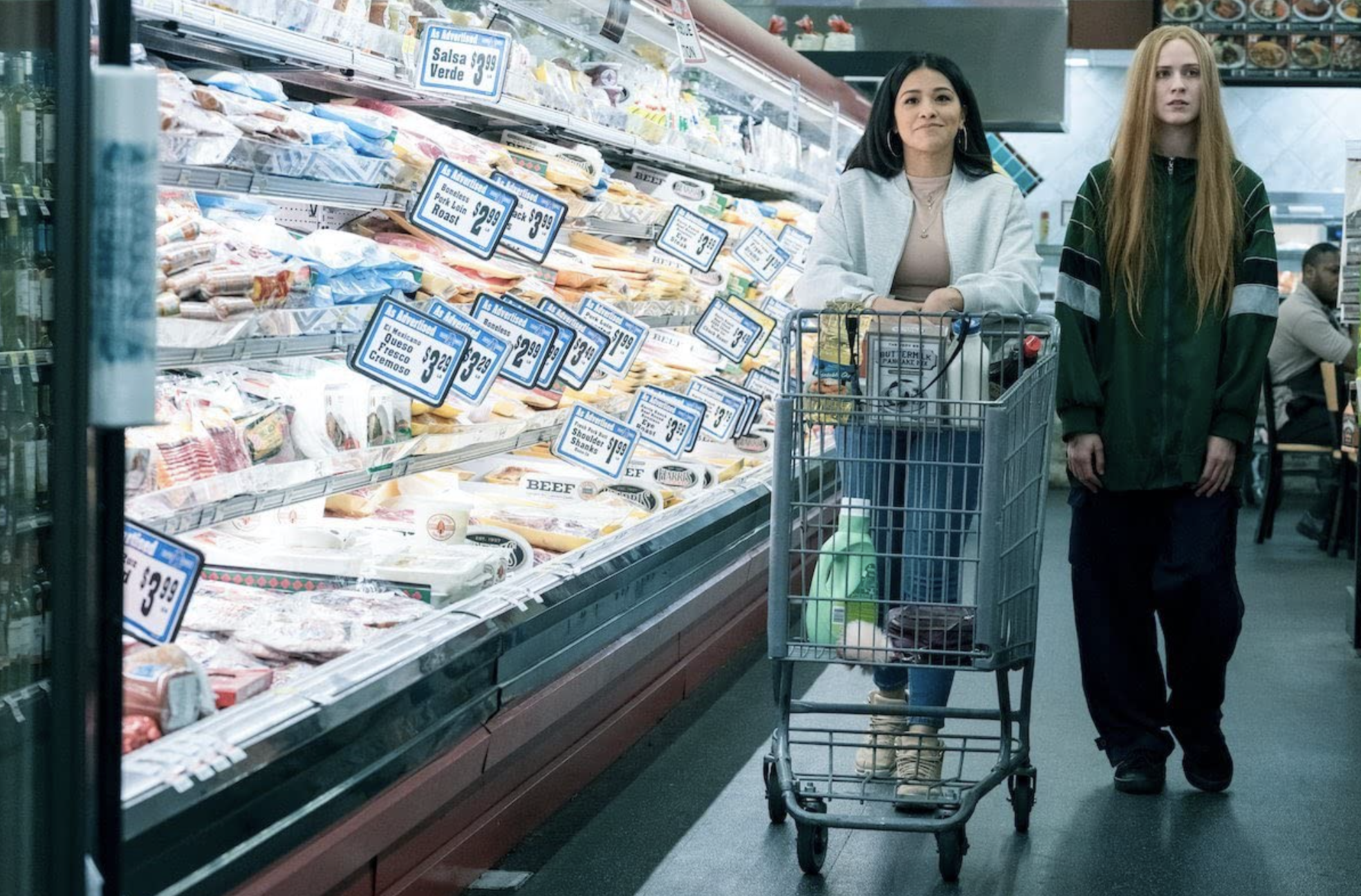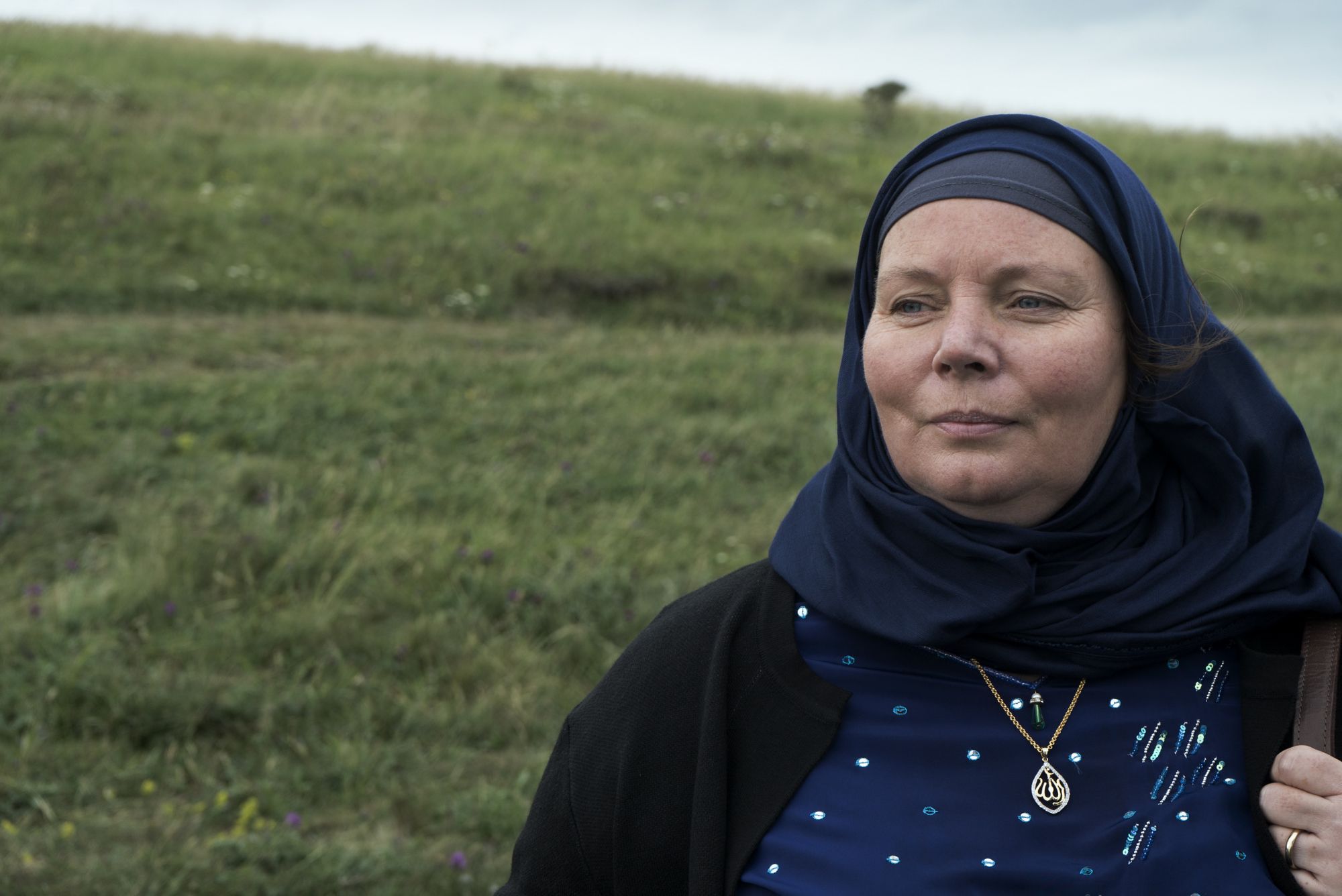By Maddy Raven, Film & TV Editor
From the 7 to the 18 October, more than 300 films were screened online and in local cinemas by the BFI for the London Film Festival – although it would have been physically impossible to see them all, here are some of my favourites (much improved by being able to see two of them in person on a large screen at The Watershed).
Shirley (2020)
Starring Elisabeth Moss, Logan Lerman, Odessa Young and Michael Stuhlbarg, Shirley is a film written by Josephine Decker, adapted from the fictional novel by the same name (Susan Scarf Merrell) about the real Shirley Jackson. Shirley Jackson was ahead of her time – a prolific genre author, and the breadwinner of her family in the ‘50s.
Known for titles such as The Haunting of Hill House and We Have Always Lived in the Castle, both of which have been adapted in recent years, Shirley Jackson was a brilliant mind, although this film takes a slightly different direction.

When Shirley’s husband, Stanley, invites his teaching assistant Fred and wife Rosie Nemser to move in with them while the two men work at the local Bennington College, the four fall into a strange pattern, acting out toxic patterns of behaviour and almost ritualistic bonding techniques. As soon as they arrive, Stanley asks Rosie (who is pregnant) to take over on household chores, because Shirley is unable to look after herself.
Rosie and Shirley form a fascinating, symbiotic relationship, which toes the line between friend and foe, as Shirley becomes obsessed with the story of a local missing girl, and Rosie is sucked into the intricacies of Shirley’s world. At times, it seems that Shirley is playing with Rosie, and at others, she seems genuinely concerned about the young woman’s wellbeing.
Rosie and Shirley form a fascinating, symbiotic relationship, which toes the line between friend and foe
Shirley gives an impassioned speech to Stanley about why this missing girl, and indeed all young women who are taken advantage of, matters; she still participates in the reverent erosion of Rosie’s psyche, whilst Fred grows distant. Stripped bare, Rosie becomes nothing more than a deluded housewife, though it’s unclear how much of that is Shirley’s fault, and how much of this descent into discontent was as inevitable as she would have us believe.
The obvious scorn Shirley shows for Rosie’s life choices is prevalent throughout, despite the fact that she herself is miserable and so they find solace in each other, playing a strange game of cat and mouse around the beautiful home in which they both appear to be trapped.
Kajillionaire (2020)
Kajillionaire is more light-hearted, though it has a dark undercurrent. Old Dolio Dyne (Evan Rachel Wood) is a young woman in a co-dependent relationship with her con artist parents. A watch on her wrist tells her that every day, she must return to where they have set up camp in an old office space and help to clean up the mess created by the overflow from the bubble factory next door.

When they have to make some quick cash, Old Dolio suggests an insurance scam involving lost luggage at an airport – her parents meet Melanie (Gina Rodriguez), who goes from potential mark to apprentice in their schemes. Though this seems fun to Melanie at first, the tensions in the family rise when their dynamic is changed, and Old Dolio begins to long for the experiences she has missed out on. She seems to be stuck as a petulant child, in baggy clothes and hanging her head, and this film chronicles her coming-of-age. Birthdays, cuddles and pet-names are not commonplace for her family, but Melanie opens up the world for her, and watching the two women circle each other – one a frightened animal, and the other warm and inviting - is fascinatingly beautiful.
In fact, the film is full of larger than life characters, creating a fantastical fairy tale full of colour, and though the premise of the film seems surreal, the underlying emotions are very much real.
After Love (2020)
After Love was the saddest of the films I watched at the festival. The debut feature of Aleem Khan, it tells the story of Mary – a white woman who converts to Islam in order to be with her husband. When he dies, she discovers that he has been having a years-long affair with a woman in Calais. Set in Dover, the film explores the relationship between the two coastal towns, and identity. More importantly, what we build our identity around, or rather, who.
I went to see this film because I am from Thanet, so Dover is my next-door neighbour in a way, and seeing the cliffs where I’ve walked so many times being traversed by Joanna Scanlan was quite strange for me.

This film was deeply emotional – and very quiet. Joanna Scanlan fully inhabits Mary, though without the assurance of her husband, Mary becomes internal and uncomfortable in her own skin. When she is asked why she doesn’t remove her hijab after her husband dies, she explains that she’s worn it longer than she hasn’t. Even when it becomes apparent that her husband was unfaithful for years, she continues to cling to her adopted religion: a last vestige of him, and a lifeline. Theirs is a relationship that spans decades (she mentions that they met when she was fourteen), and she can’t simply let go just because he was unfaithful.
Watersprite Film Festival: In conversation with the filmmakers behind For Sama
Short films at the London Film Festival
Writing this now, I realise that all three of my favourites are female led. Elisabeth Moss, Joanna Scanlen and Evan Rachel Wood all give powerhouse performances in films that are ultimately about female friendship and relationships. It is so rare to find worlds within film that aren’t dominated by men in some way – though it’s possible that technically speaking, After Love might fail the Bechdel test because of its subject matter – and these three films exemplify the complex inner worlds that women build for themselves, and how they relate to the world around them.
Featured: IMDb, RÅN STUDIO
Did you attend the London Film Festival this year?









